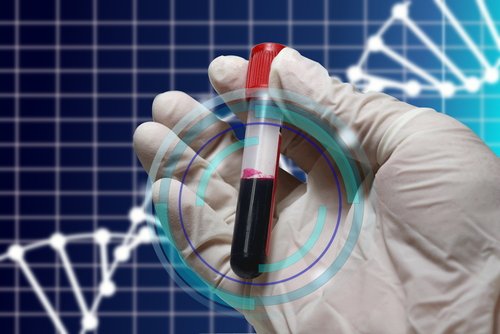Researchers Identify Genetic Predictors of Sickle Cell Anemia-Related Complications
Written by |

Patients with sickle cell anemia who do not have alpha-thalassemia and the genetic rs1427407 T variant of the BCL11A gene may be at higher risk for hemolysis (rupture of red blood cells) and stroke, according to the results of studies of three independent groups.
These findings were featured in Blood Advances, in the study titled “Associations of α-thalassemia and BCL11A with stroke in Nigerian, United States, and United Kingdom sickle cell anemia cohorts.”
“Our goals were to incorporate individual genetic predictors of sickle cell disease severity into a risk profile to better predict which patients are at higher risk for sickle cell-related complications,” Santosh L. Saraf, MD, lead author of the study, said in a news report. Saraf is an assistant professor of medicine in the department of hematology and oncology at the University of Illinois at Chicago.
“A high-risk genetic profile can allow us to focus resources, such as hydroxyurea or red blood cell transfusion therapy, in those patients that have a greater likelihood of developing severe complications,” said Saraf.
Alpha-thalassemia is caused by impaired production of alpha chains of hemoglobin, which leads to accumulation of hemoglobin’s beta chains. This blood disorder is present in about one-third of sickle cell anemia patients, and is associated with reduced hemolysis and protection against some sickle cell anemia–related complications.
Another genetic alteration commonly found in patients with sickle cell anemia is the BCL11A rs1427407 T variant. This genetic alteration previously was associated with increased fetal hemoglobin levels, reducing sickle cell disease severity.
A previous study showed that co-inheritance of alpha-thalassemia and BCL11A rs1427407 T with a third genetic marker, APOL1 G1/G2, were good predictors of kidney disease in patients with sickle cell anemia.
In the present study, Saraf and colleagues determined the potential risk co-inheritance of alpha-thalassemia and BCL11A rs1427407 T variants could represent in terms of laboratory and clinical sickle cell anemia evaluation.
The study included a total of 896 patients from three independent groups — the University of Ibadan in Nigeria, the University of Illinois at Chicago, and from the multi-center Walk-Treatment of Pulmonary Hypertension and Sickle Cell Disease with Sildenafil Therapy study (Walk-PHaSST).
Evaluation of the University of Ibadan group showed that those without alpha-thalassemia and BCL11A rs1427407 T had higher levels of reticulocytes (immature red blood cells) and stroke history compared to patients with alpha-thalassemia and BCL11A rs1427407 T co-inheritance. This analysis was repeated in the other two groups, and confirmed the risk profiles for this subgroup of patients.
Pooled data of the three groups showed that the high-risk genetic profile was associated with increased markers of hemolysis, such as hemoglobin levels and reticulocyte percentage. In addition, those without alpha-thalassemia and BCL11A rs1427407 T had double probability of presenting stroke history.
“The biggest takeaway is that two genetic variants that affect the degree of hemolysis predict stroke risk in three independent cohorts of sickle cell disease patients from Africa, the United States, and England,” Saraf said. “This can allow us to risk stratify patients with sickle cell disease and provide insight into the pathophysiology of sickle cell-related complications.”
Additional studies assessing the predictive potential of this genetic risk profile may help identify sickle cell anemia patients that may be at risk for stroke and may benefit the most form hydroxyurea therapy and transfusion strategies.


